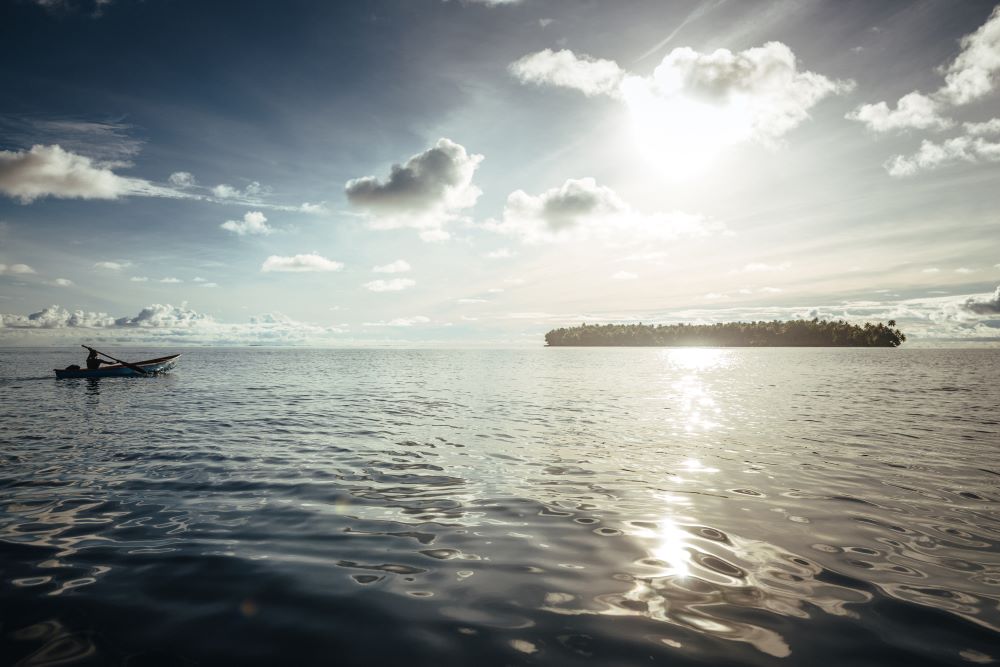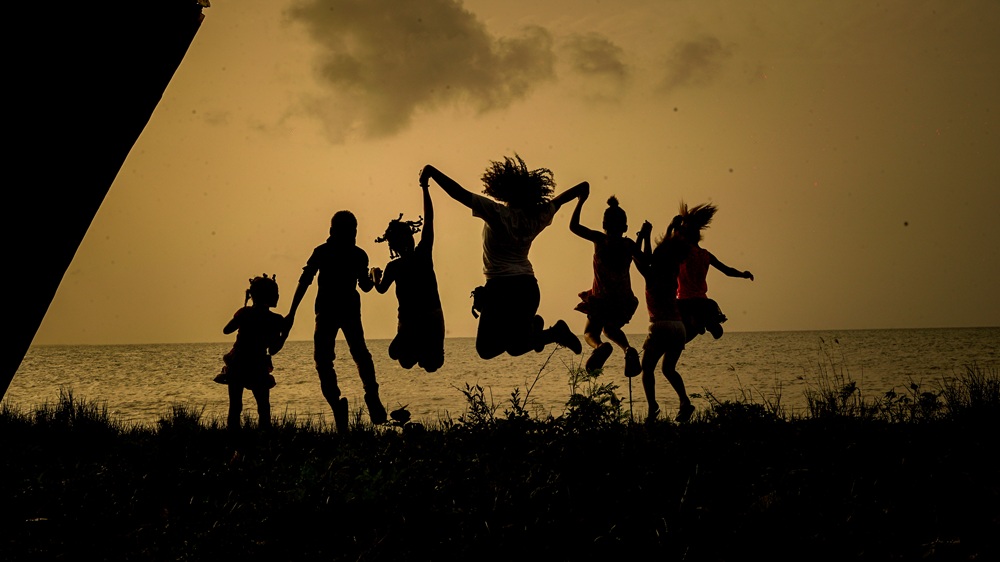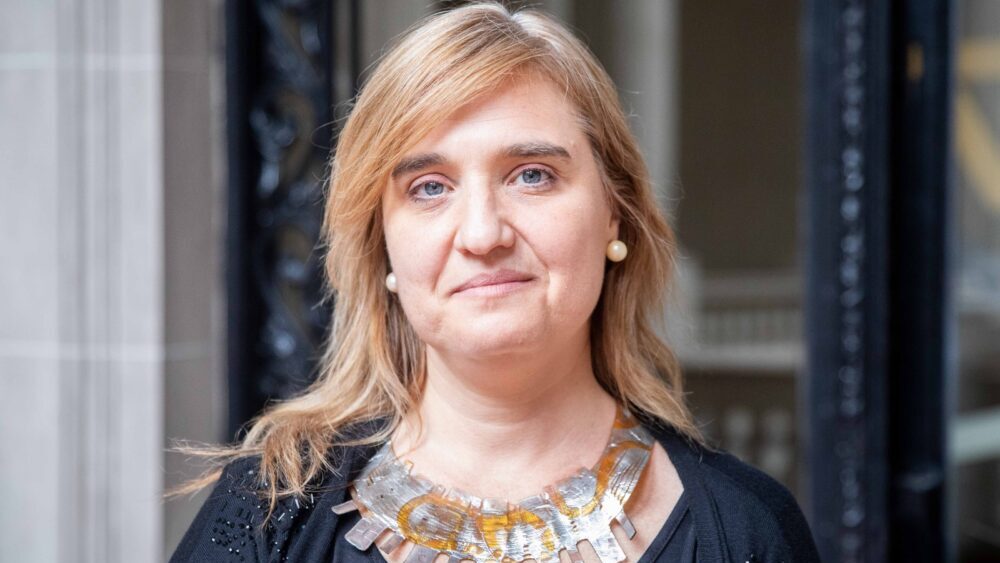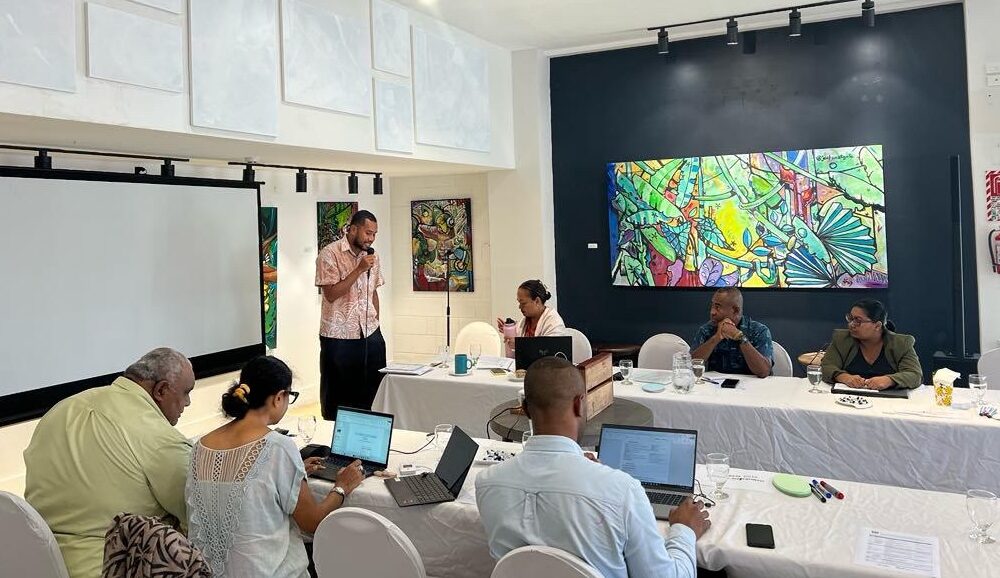In Conversation With… Ms. Bernie Goulding
As the world grapples with the escalating impacts of climate change, the Pacific region emerges as a poignant example of vulnerability and resilience, embodying the complex linkages between climate change and human mobility. During the 14th Global Forum on Migration and Development (GFMD) Summit in Geneva from 23-25 January 2024, the Platform on Disaster Displacement (PDD) co-organized a side-event on Regular Pathways in the Age of Climate Change: Blending Policy, People, and Art with Secours Catholique – Caritas France, the Climate, Migration, and Displacement Platform, and the GFMD Civil Society Mechanism. During the panel discussion, Ms. Bernie Goulding, Director of the Diversity Network Australia and Member of the Pacific Women’s Indigenous Network (PacificWIN), highlighted key considerations around climate change and human mobility in the Pacific, including the importance of traditional knowledge and the historical context. In a follow-up conversation, we explored these issues in greater depth.
We don’t inherit the Earth from our elders; we borrow it from our children.
PDD Secretariat: What are some key factors to consider when addressing climate change and human mobility in the Pacific context?
Bernie Goulding: The Pacific is acutely vulnerable to both slow-onset climate change and rapid-onset disasters, housing the top three countries worldwide in terms of disaster risk: Vanuatu, Tonga and the Solomon Islands. I used to work as a nurse in the Pacific and some villages I visited are below sea level already. This poses an existential threat, particularly to low-lying atolls such as Kiribati, and could potentially displace entire communities. Moreover, the deep-rooted cultural and ancestral ties, and the profound connection Pacific people have with their land, complicate the notion of relocation. For example, if you look at places like Papua New Guinea and the Solomon Islands, they have been there for 50,000 years. These challenges are compounded by limited resources in potential host countries, highlighting the need for comprehensive support for incoming communities.

PDD Secretariat: Can you share an example aimed at better supporting communities facing disaster displacement in the Pacific?
Bernie Goulding: The aftermath of the Asian tsunami warnings across the Pacific highlight what a logistical nightmare it can be to relocate communities from low-lying land. The fact that it was impossible to move thousands of people, including tourists, staff and local communities, to areas at least 20 meters higher within a matter of hours starkly highlighted the gaps in our preparedness for such events. We grappled with the reality that even securing transport for such a massive evacuation within 24 hours was beyond our reach, let alone finding a safe haven for everyone affected.
In this context, the resilience and ingenuity of Pacific communities shines through, particularly through grassroots initiatives aimed at bolstering environmental conservation and disaster preparedness. Mangrove reforestation efforts particularly stand out because they serve a dual purpose: they not only protect our shores from the encroaching sea but also help preserve the marine ecosystems that are vital for our food security. These local actions, driven by a deep understanding of the environment and a commitment to communal well-being, are vital in mitigating the immediate impacts of disasters.
Moreover, these efforts underscore the strength of our communal spirit and the importance of collaboration. This sense of unity and shared purpose is something I believe can inspire broader strategies for dealing with climate change and disaster preparedness globally. It highlights the critical role of listening to and genuinely partnering with local communities to address their unique needs and leverage their traditional knowledge and practices in facing the global climate crisis.
PDD Secretariat: Why is history such an important part of the narrative around climate change and human mobility in the Pacific context?
Bernie Goulding: Understanding the Pacific’s history is crucial for framing the climate mobility narrative. The legacy of colonization, resource exploitation, and external interventions, including slavery, has left profound scars. In the Pacific, we experienced a devastating era of slavery that continued even after it ceased in Africa. This history of exploitation extended through the horrors of the Second World War, fought across the Pacific, leaving communities devastated. The discovery of vast natural resources led to relentless mining, often by external nations, further degrading the environment and sustainability of these islands. Countries like Nauru suffered immensely, with a significant portion of its phosphate resources extracted.
Recognizing these historical injustices shifts the perspective from seeing Pacific nations as merely victims needing rescue to acknowledging the need for restorative justice and reparations. It is not a story of where Western countries have to come to the rescue of poorer Island countries. This historical context is essential for addressing the root causes of climate vulnerability – it is about acknowledging the contributions and sacrifices of Pacific communities over centuries, fostering equitable support mechanisms for a more resilient future.
PDD Secretariat: How can traditional knowledge and practices be integrated into strategies to address climate change and human mobility?
Bernie Goulding: Pacific Islanders’ traditional knowledge is a cornerstone for climate adaptation and resilience. Addressing climate mobility necessitates not only preserving community cohesion and dignity but also leveraging diaspora support, in particular with communities in destination countries like Australia, New Zealand, USA and the UK. It also requires providing appropriate support and funding and addressing climate change impacts, for example by ensuring access to uncontaminated resources for subsistence farming and fishing. Listening to the voices of designated community leaders to support their needs, such as identifying safe areas for agriculture and ensuring water and land are free from pollution, is essential. Acknowledging and respecting indigenous leadership and wisdom can enhance the effectiveness of adaptation strategies, ensuring they are culturally sensitive and grounded in the realities of Pacific communities.
PDD Secretariat: What are your hopes for the future regarding climate change and human mobility in the Pacific?
Bernie Goulding: My hope lies in the empowerment and engagement of Pacific youth, who are increasingly vocal and active in shaping their future. The leadership and inclusivity demonstrated by young Pacific Islanders is particularly inspiring. They are notably more accepting and supportive, challenging the anti-migration narrative and addressing funding issues with a fresh perspective. Their capacity to hold leaders accountable, coupled with a profound connection to their heritage, offers a path toward sustainable solutions.
There is a saying coming out Palau, which says: “We don’t inherit the Earth from our elders; we borrow it from our children.” By listening to and supporting the voices of the youth, there is potential to forge a more resilient and just future for the Pacific, one where the challenges of climate mobility are met with solidarity, innovation, and respect for the rich cultural legacies of the region.
Header photo @ GFMD / Body photo @ IOM





